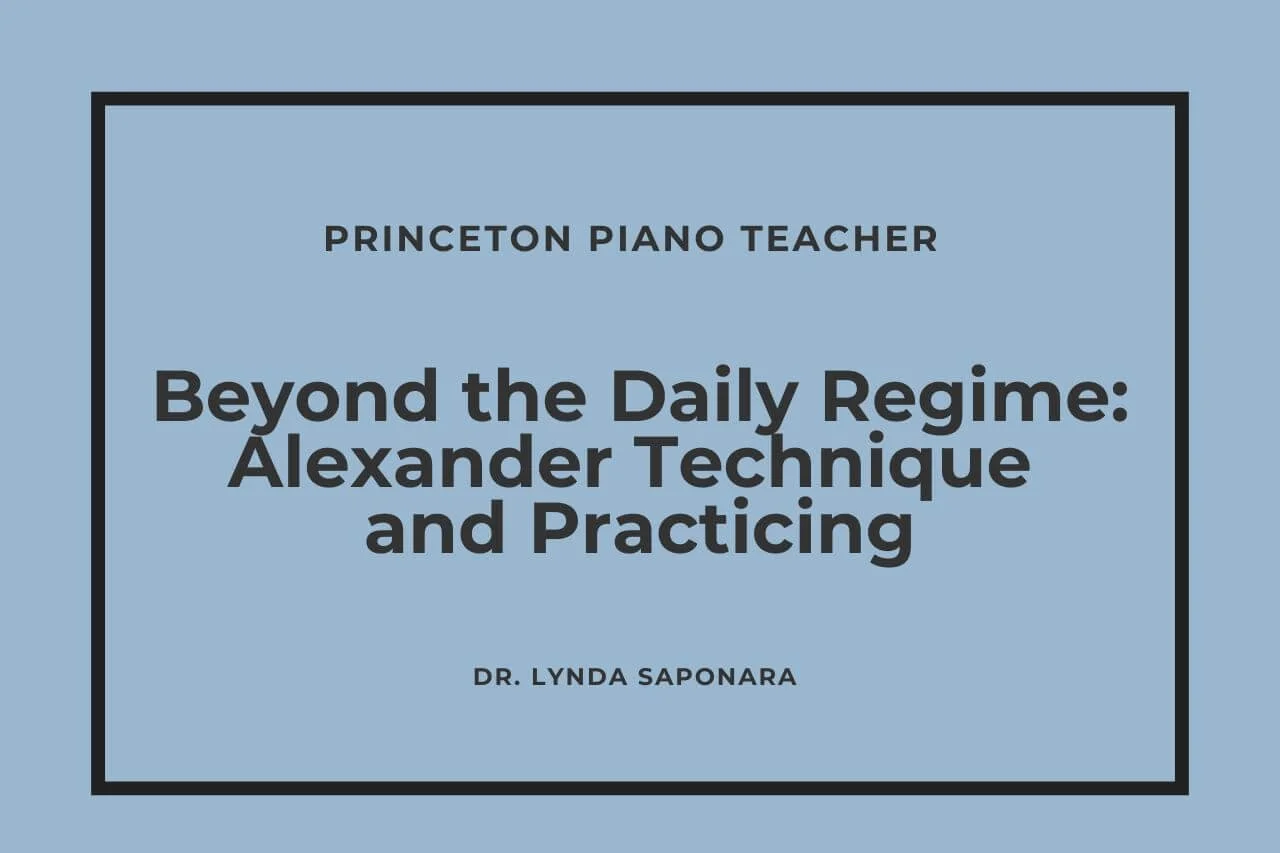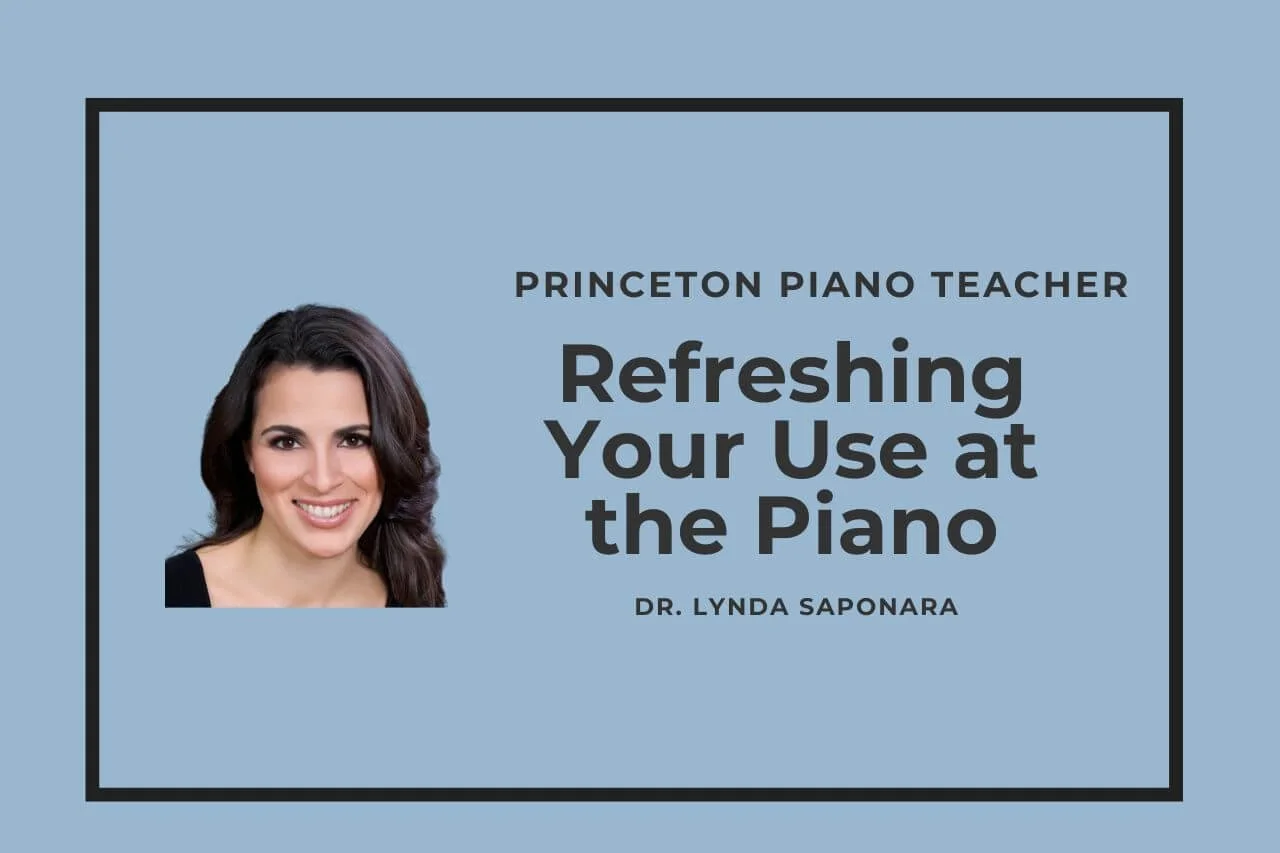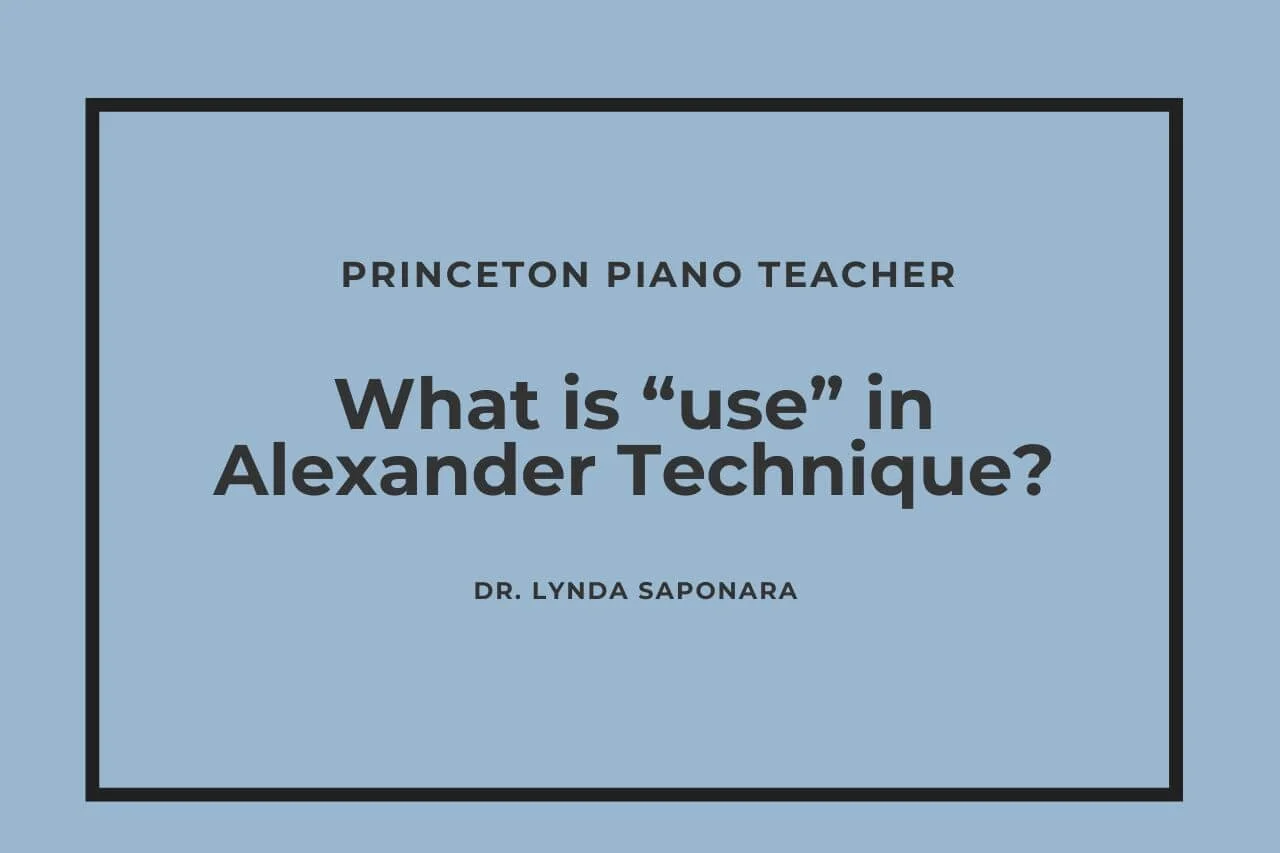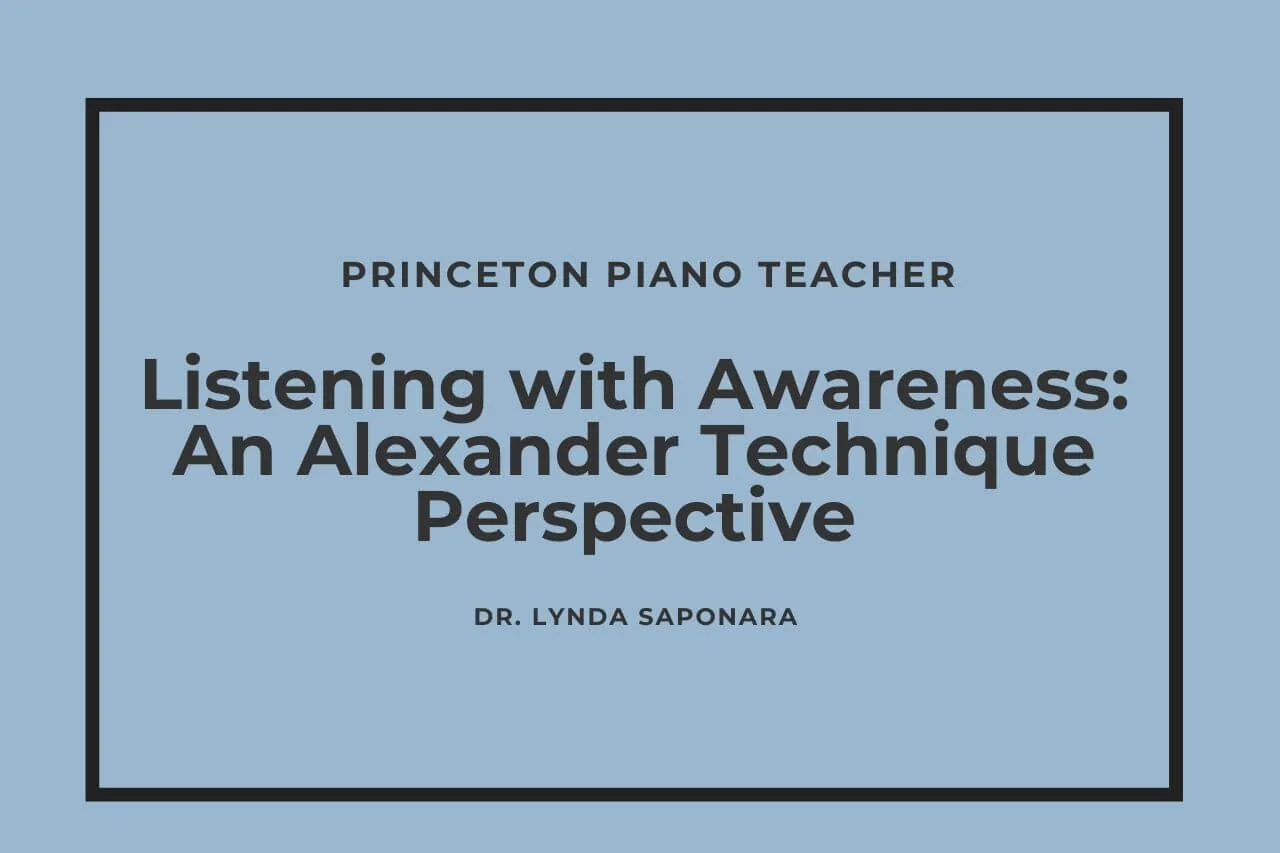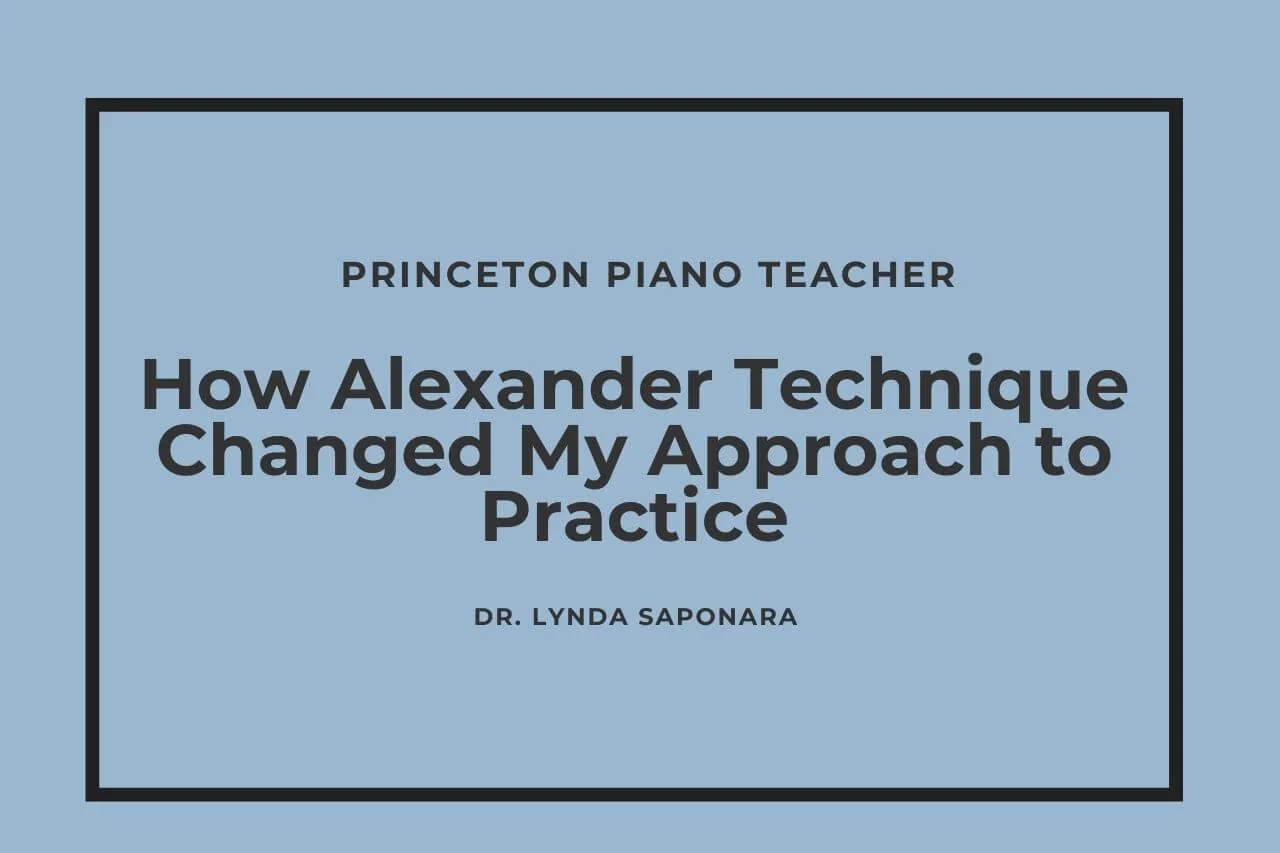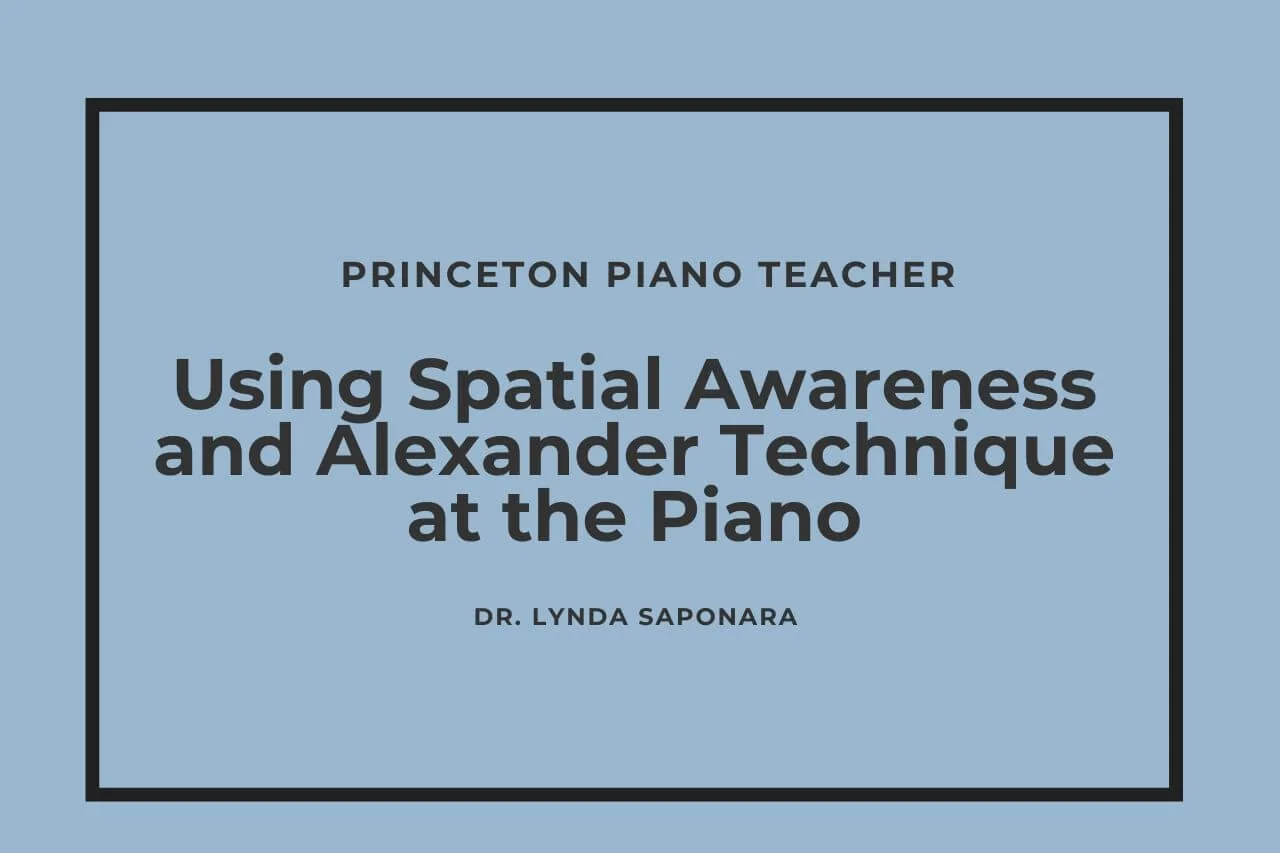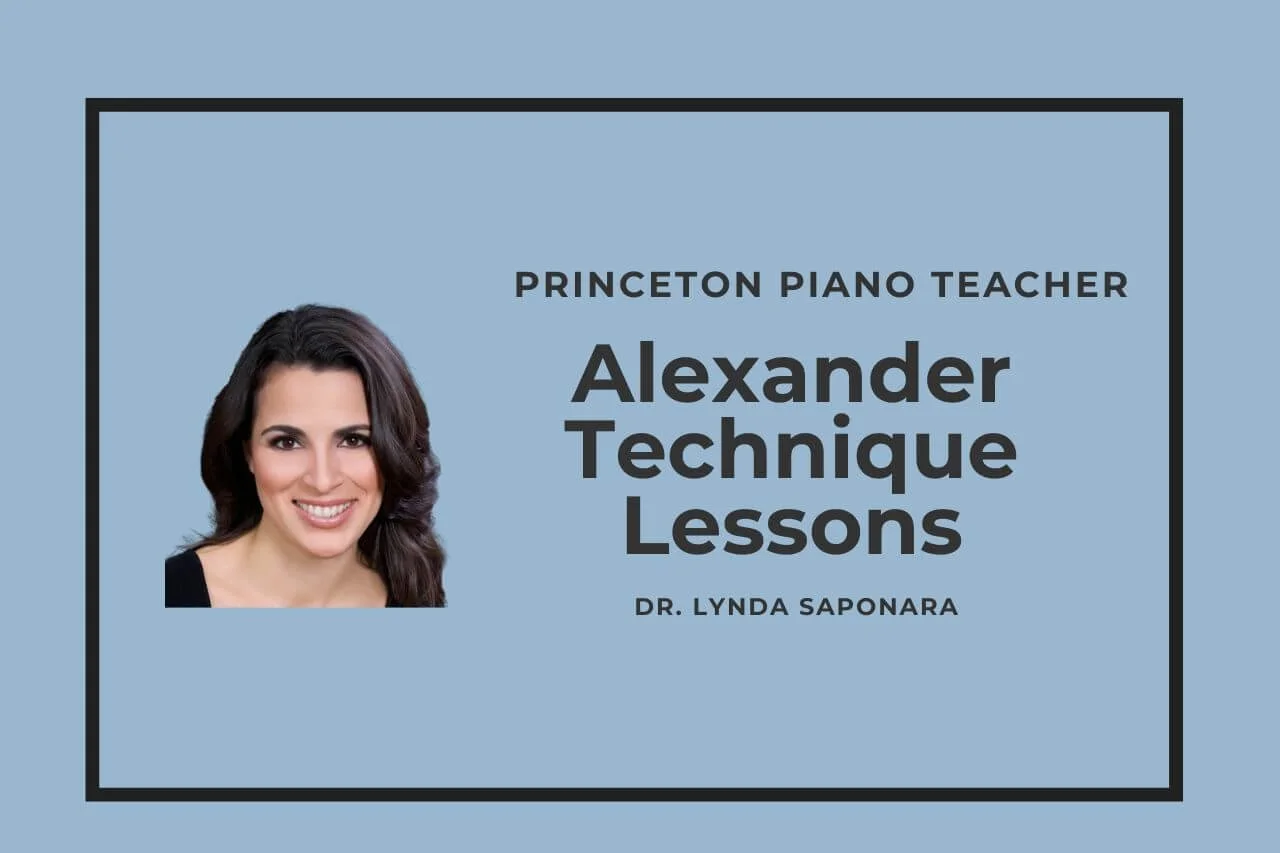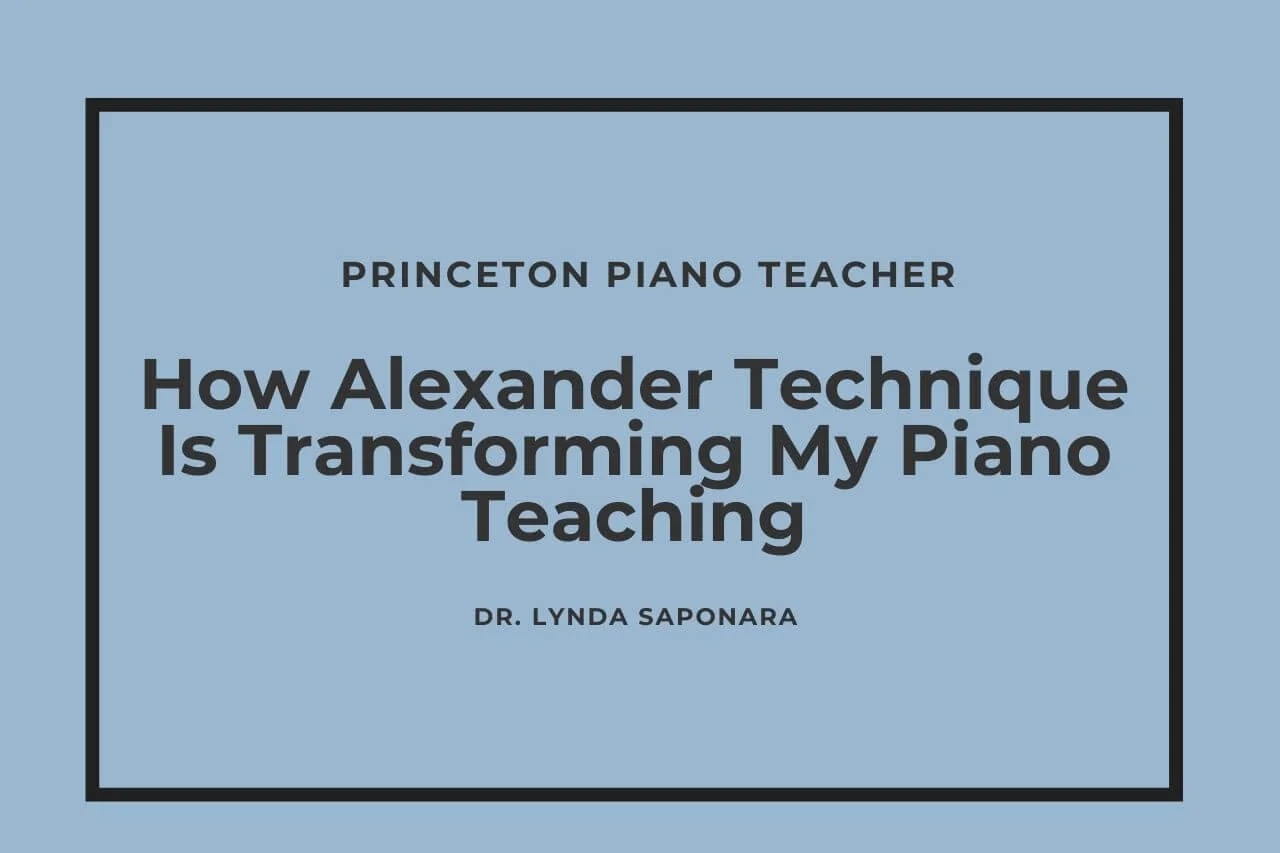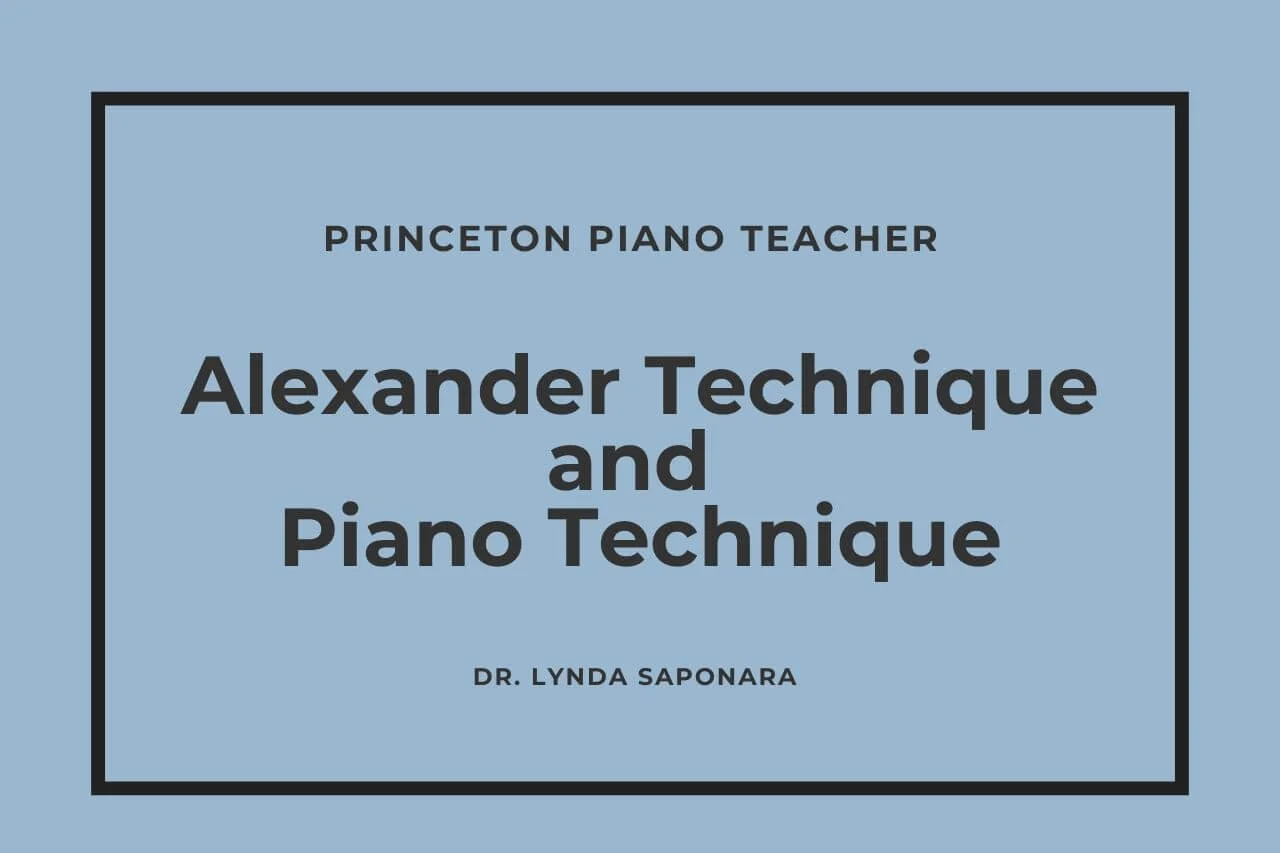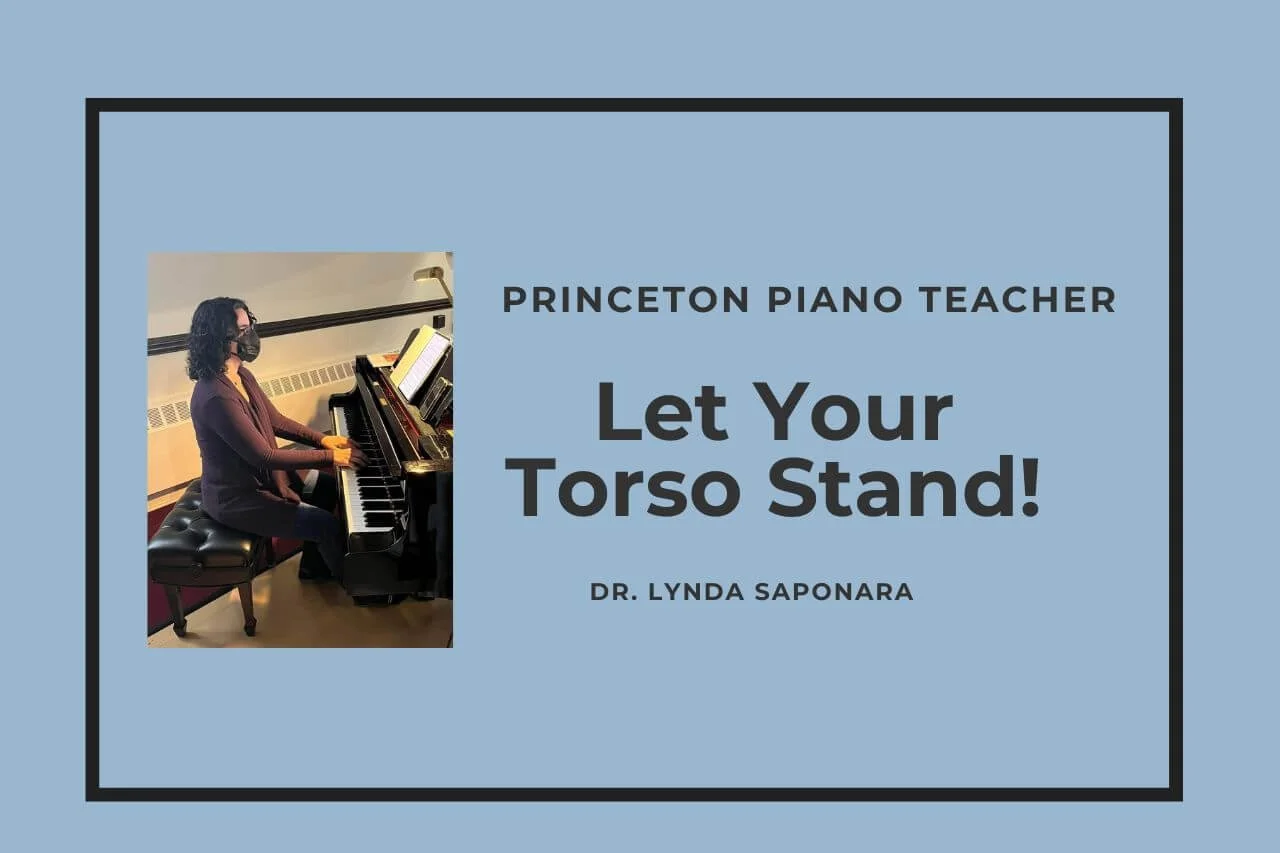Princeton Piano Teacher Blog
Beyond the Daily Regime: What Alexander Technique Taught Me About Practice
What happens when we stop practicing for results and start practicing with awareness? This reflection on Alexander Technique and Indirect Procedures explores how subtle shifts in thinking can bring lasting change to our playing and teaching.
Refreshing Your Use at the Piano
Small shifts in awareness can change how we sit, move, and teach. Explore simple ways to refresh your coordination at the piano with Alexander Technique.
What is “use” in Alexander Technique?
In Alexander Technique, “use” isn’t just about movement—it begins with how we think. This article explores what that means for musicians, and how small changes in awareness can lead to positive changes in our playing.
Listening with Awareness: An Alexander Technique Perspective
Alexander Technique invites us to listen with our whole self—not just our ears. Learn how cultivating awareness in your own use can transform listening and enrich your musical work.
How Alexander Technique Changed My Approach to Practice
Wondering how Alexander Technique might change your piano practice? This article explores how it can reduce tension, support coordination, and make practicing more sustainable.
Using Spatial Awareness and Alexander Technique at the Piano
Discover how spatial awareness and the Alexander Technique can help pianists move with more freedom, ease, and intention at the keyboard.
Alexander Technique Lessons
If you’re wondering what Alexander Technique lessons might be like, this article explains both in-person and online lessons experiences.
How Alexander Technique Is Transforming My Piano Teaching
Discover how the Alexander Technique can change the way we teach piano—helping our students play with more freedom and learn in a deeper, more lasting way.
Alexander Technique for Performance Anxiety
Do your students get nervous before their recitals? This article and video will introduce you to a simple Alexander Technique practice that can help with performance anxiety.
Alexander Technique and Piano Technique
Are your ideas about piano technique set in stone, or are you open to see them in a new way? Learn how Alexander Technique can enhance your piano technique.
Injury Recovery
Recovering from an injury is difficult, yet we can gain insight and experience along the way that will inform our playing in ways we might not expect.
Speaking to Students
The exploration in this article will show you through experience how important it is to choose our language carefully when we teach!
Piano Habits
Are your habits at the piano helpful or do they get in the way of efficient movement? Explore this idea from an Alexander Technique perspective.
Pianist or Athlete?
If we consider ourselves athletes at the piano, it can change the way that we think about technique and movement.
Alexander Technique: Arm Use
Learn to use the back muscles to support the arms properly, so that we can avoid overusing small muscles that are prone to injury.
Let Your Torso Stand!
Learn about “posture” from an Alexander Technique point of view, and improve your sitting—whether you’re at your piano or your desk!
Alexander Technique: End Gaining
The way we think is the way we move, and that’s especially important for pianists to understand. Learn about this through an Alexander Technique concept called “End Gaining”.
Alexander Technique: Soft Eyes
Learn about a concept from aikido that we use in Alexander Technique. It can help with your sight reading and teaching!
Alexander Technique: Language
Pianists can start their Alexander Technique practice simply by adjusting the language they use when they talk about playing the piano. This article will get you started doing just that!
Alexander Technique: “Posture”
Posture isn’t really a word that we use in Alexander Technique, so how can we think about sitting at the piano in a different way? This article and video will give you some ideas.
